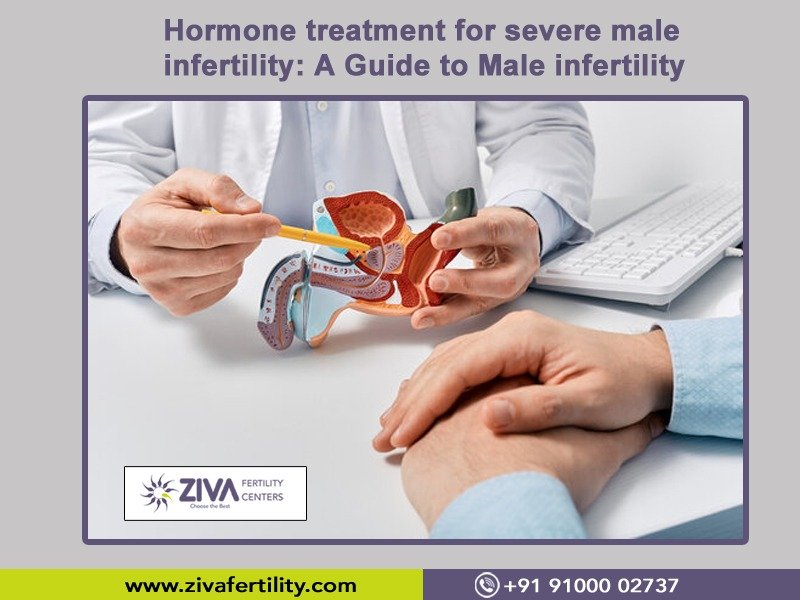Male hormones are equally complex and nuanced as female hormones. Most men ignore their hormonal health until something is wrong. Excess or insufficient hormones can affect a man’s fertility and overall health, even after puberty. Hormonal testing can help prevent hormonal imbalances or correct them quickly if they do happen. It is also a good idea to get hormonal testing done before you and your partner start trying to get pregnant.
What glands produce male fertility hormones?

The endocrine system is responsible for hormone production, including the ones responsible for hormone production. The glands responsible for hormone production related to fertility are:
Hypothalamus: The hypothalamus is responsible for the body temperature, moods, hunger, thirst, sleep and sex drive.
Adrenal: These glands produce hormones responsible for sex drive and the stress hormone cortisol.
Testes: These are the main fertility-related glands which produce the male sex hormone, Testosterone, and sperm.
Male hormones are responsible for sex drive to emotional regulation and muscle mass (or lack thereof), just like female hormones do. A woman’s hormonal cycle averages about 28 to 35 days, and men go through the hormonal cycle every 24 hours.
If the hormonal changes are rapid, it affects obesity, excess stress, exhaustion, irritability, and a lowered libido. All these factors, in turn, significantly impact your ability to produce enough healthy sperm to fertilize an egg naturally.
Which hormones affect fertility in men?

Even though hormones are classified as “sex hormones” or “energy hormones,” they are all vital in the male endocrine system. But for fertility reasons, one should know the “sex hormones”.
Testosterone: The first hormone to come to mind is Testosterone. It affects nearly every process in a man’s body though it mainly controls sexual and reproductive health. The Leydig cells in the testicles release Testosterone and stimulate sperm production.
If Testosterone is less than normal, it is called hypogonadism, and hormone replacement therapy can be used to treat this condition. If Testosterone is in excess, it converts to the female hormone estrogen, causing mood swings, shrunken testicles, and breast enlargement.
Luteinizing Hormone (LH): Luteinizing Hormone is a gonadotropic hormone the pituitary gland produces. LH stimulates testosterone production in the testicles, allowing it to perform its necessary functions. Any abnormal production of Luteinizing Hormone can cause infertility, so it’s important to have a balance. A blood test can measure your LH levels.
Follicle-Stimulating Hormone (FSH): FSH, or follicle-stimulating hormone, is also a gonadotropic hormone whose primary role is interacting with the Sertoli cells in the testes to stimulate sperm production. Excess FSH means testicular failure, and it means low testosterone levels. Too little FSH can cause limited sperm production and make the natural fathering of a child more difficult.
Gonadotropin-releasing hormone (GnRH): Before FSH or LH are released, the hypothalamus generates gonadotropin-releasing hormone (GnRH), which then prompts the pituitary gland to create FSH and LH, respectively. Low levels of GnRH cause loss of sperm production.
What is low Testosterone?
As mentioned, low Testosterone is called hypogonadism, and “low levels” has a wide range. One can find out the T-levels in a blood test, and physical symptoms would be problems with erections or decreased sex drive. It’s best to get the test done early in the morning as the T levels vary throughout the day, and an abnormal test should be repeated.
Can low Testosterone be treated?
The main course of treatment for low T-levels is medicines through shots, gels, patches, or implantable pellets.
Low Testosterone itself does not cause infertility. Many hormones other than Testosterone are responsible for Sperm production. Even men with low or borderline T levels may have sufficient T levels in their blood for sufficient sperm production. If hormonal levels are causing infertility, then hormone replacement therapy can be done. But the name is a misnomer since as men get older, testosterone levels decrease. So if natural hormone production reduces, then hormone therapy doesn’t help. If the T-hormone is reduced due to natural ageing, it does not affect fertility or cause other health issues. Hormone therapy works for those men with dysfunction of the testicles that prevents the body from producing the right amount of Testosterone.
Hormone treatment for men
If the fertility specialist suggests testosterone therapy for severe male infertility, then the treatment is given as below:
Intramuscular testosterone injections: Every two to three weeks, your doctor will inject these into the muscles of your buttocks.
Testosterone patches: the patches should be applied each day to your back, arms, buttocks, or abdomen and rotate the patches across each site.
Topical testosterone gel: The gel should be applied to your shoulders, arms, or abdomen.
What are the risks of hormone therapy?
Some of the side effects of testosterone hormone therapy are:
- Fluid Retention
- Acne
- Increased Urination
Some men develop more severe potential side effects such as:
- Breast Enlargement
- Decreased Testicle Size
- Worsening Of Existing Sleep Apnea
- Increased Cholesterol Levels
- Decreased Sperm Count
- Increased Number Of Red Blood Cells
Hormone therapy is mostly recommended for men with unnaturally low levels of Testosterone. Though there are risks, they may outweigh the benefits if you’re considering hormone therapy to compensate for a natural decrease in testosterone levels. To increase sexual hormones, one can also try resistance exercises, walking, running, and swimming. We at ZIVA Fertility Centre discuss all the outcomes of hormone therapy for men and their long-standing effects. Please visit our website https://zivafertility.com/ or contact us at +91-9100002737, +91-9392834024, or Info@zivafertility.com.
















